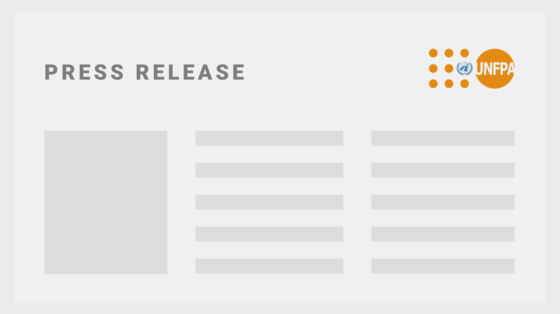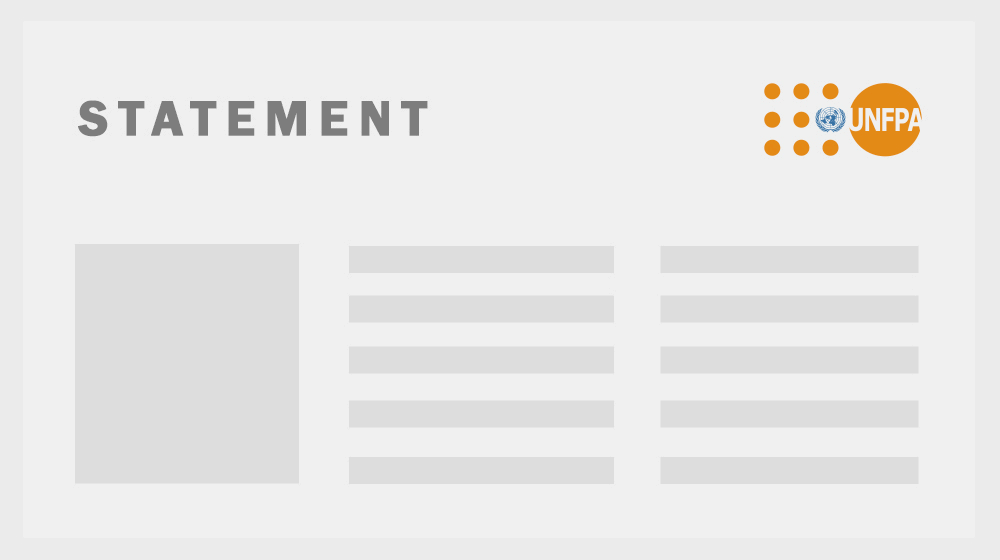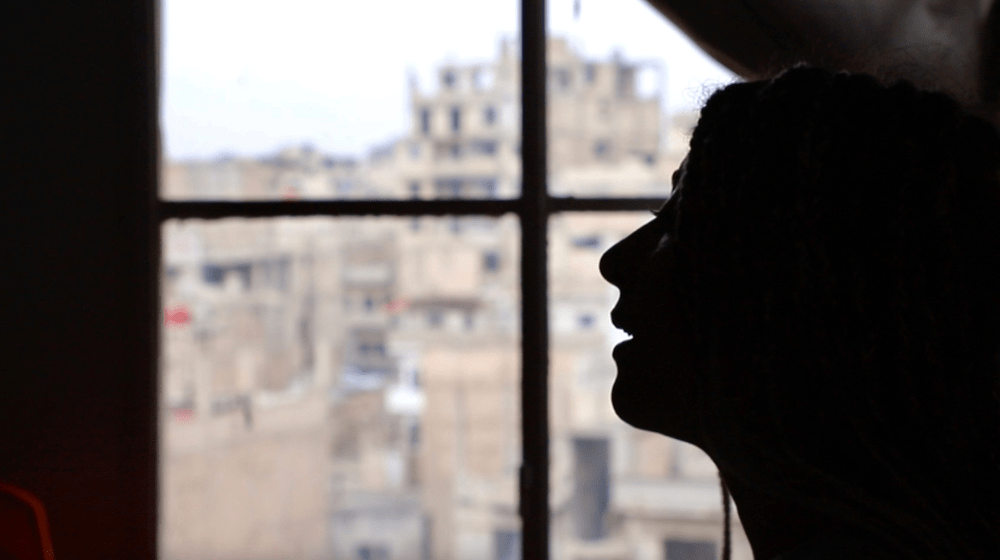
Women of Gaza: A year in crisis
Bombings. Displacement. Shattered health care. See the immense challenges women and girls in #Gaza continue to face after 12 months of suffering and how @UNFPA is taking action: http://unf.pa/gyc
Women of Gaza: A year in crisis

“Each step felt like a race against death,” a 30-year-old pregnant woman told UNFPA a year ago in October, describing her frantic flight from home as bombs began to drop on Gaza. Overwhelmed with dizziness and fatigue, she hid in the shadows in a desperate search for something that does not exist anymore in her world: a safe place.
A year has passed since war erupted in Gaza, sparked by the Hamas-led attack on Israel on 7 October, which killed more than 1,200 people, injured 5,400, and involved reports of egregious acts of sexual violence against women and girls and the abduction of 251 men, women and children.
The subsequent war in Gaza has triggered horrendous suffering, especially for women and girls. Twelve months of relentless bombing has killed more than 41,600 people and injured 96,000 so far, with most of those killed women and children. Palestinian women and girls from Gaza have reportedly been subjected to horrific levels of sexual violence, including while in detention.
An estimated 46,300 pregnant women in Gaza are now facing crisis levels of hunger. Some 155,000 pregnant and breastfeeding women face critical challenges in accessing antenatal and postnatal care. Unaffordable transportation and a lack of ambulance services hinder access to hospitals, most of which are only partially functioning.
Here, we look back at the immense challenges faced by women and girls over the past 12 months – and the ways UNFPA is endeavouring to help as war continues to rage.
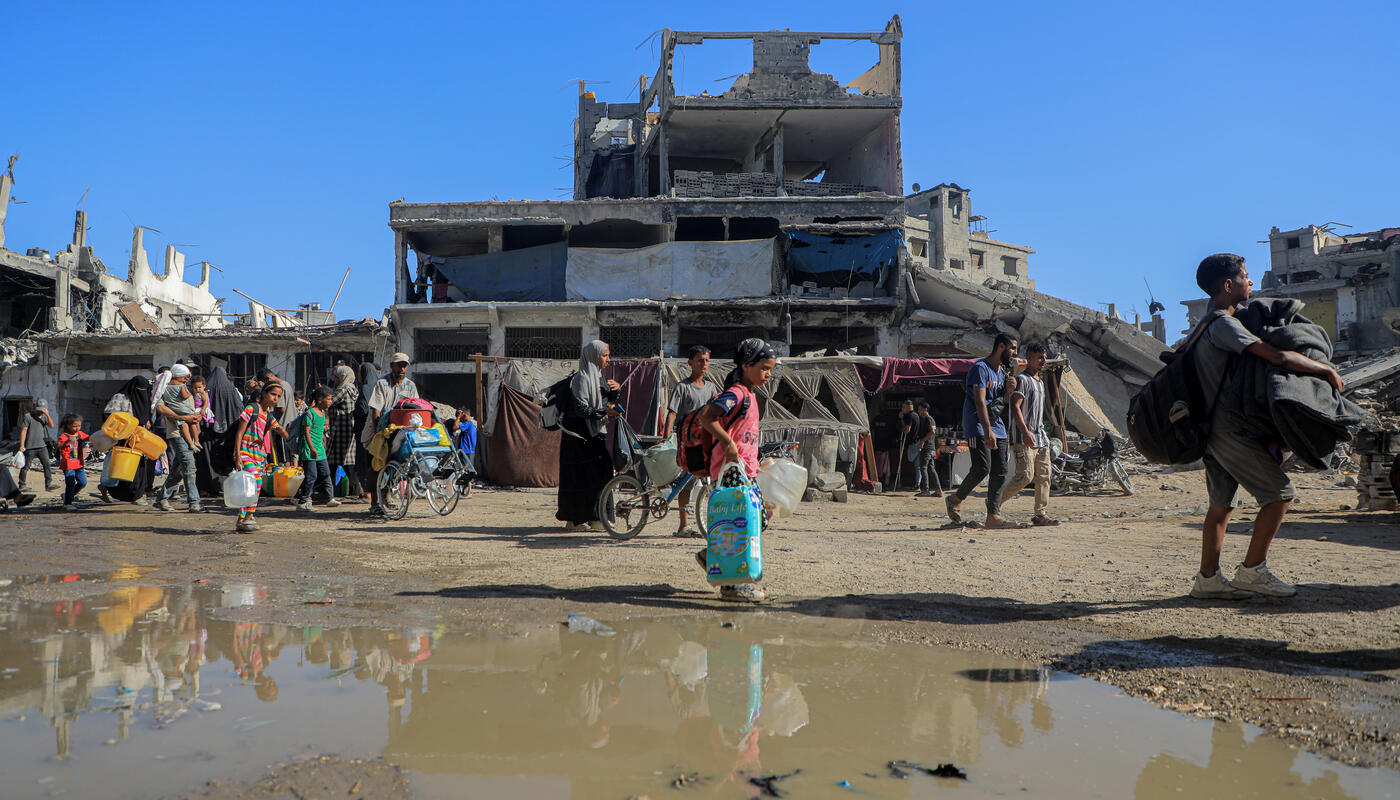
Uprooted, time and again
“Every time there is a bombing, I am terrified. My legs get paralyzed. I can’t walk. I can’t move. Especially since I have children, and I need to get up and run to get them,” a pregnant woman told UNFPA last October. “I fear for my children and for my unborn child.”
Dominic Allen, UNFPA Representative for the State of Palestine, said at the time, “Pregnant women have nowhere to go, and they are facing unthinkable challenges.” Things would only grow worse.
Now, only around 11 per cent of the Gaza Strip has not been placed under evacuation orders since October 2023. Around 1.9 million of Gaza’s 2.1 million people – 9 out of 10 – have been internally displaced, many multiple times. An estimated 43,580 are pregnant women, who cannot always flee on short notice.
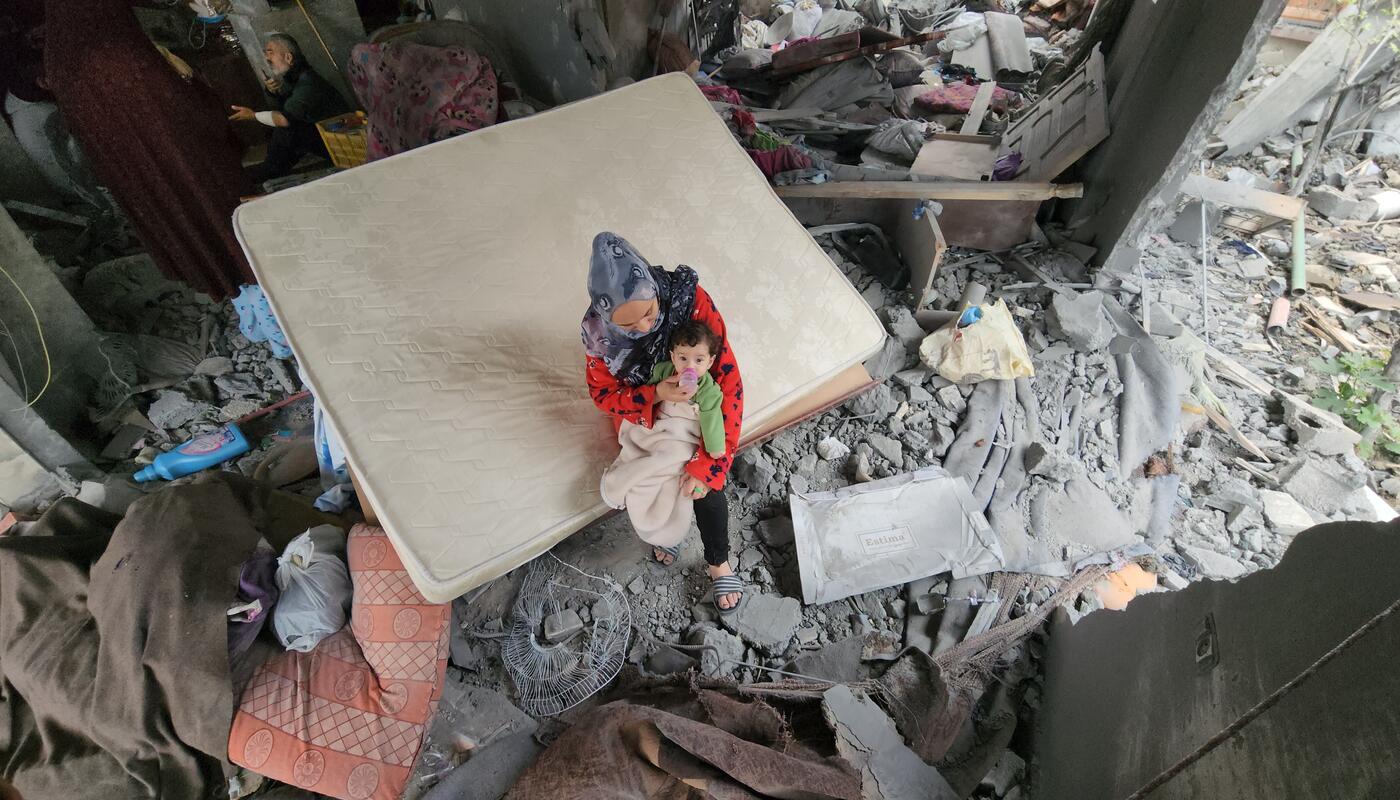
Meanwhile, with all eyes on Gaza, Palestinians in the West Bank and East Jerusalem are experiencing an escalation in violence and an increasing health crisis. Since the beginning of the war, there have been daily military operations, waves of arrests and increased Israeli settler violence in towns and cities across the West Bank, leading to the displacement of more than 4,555 people.
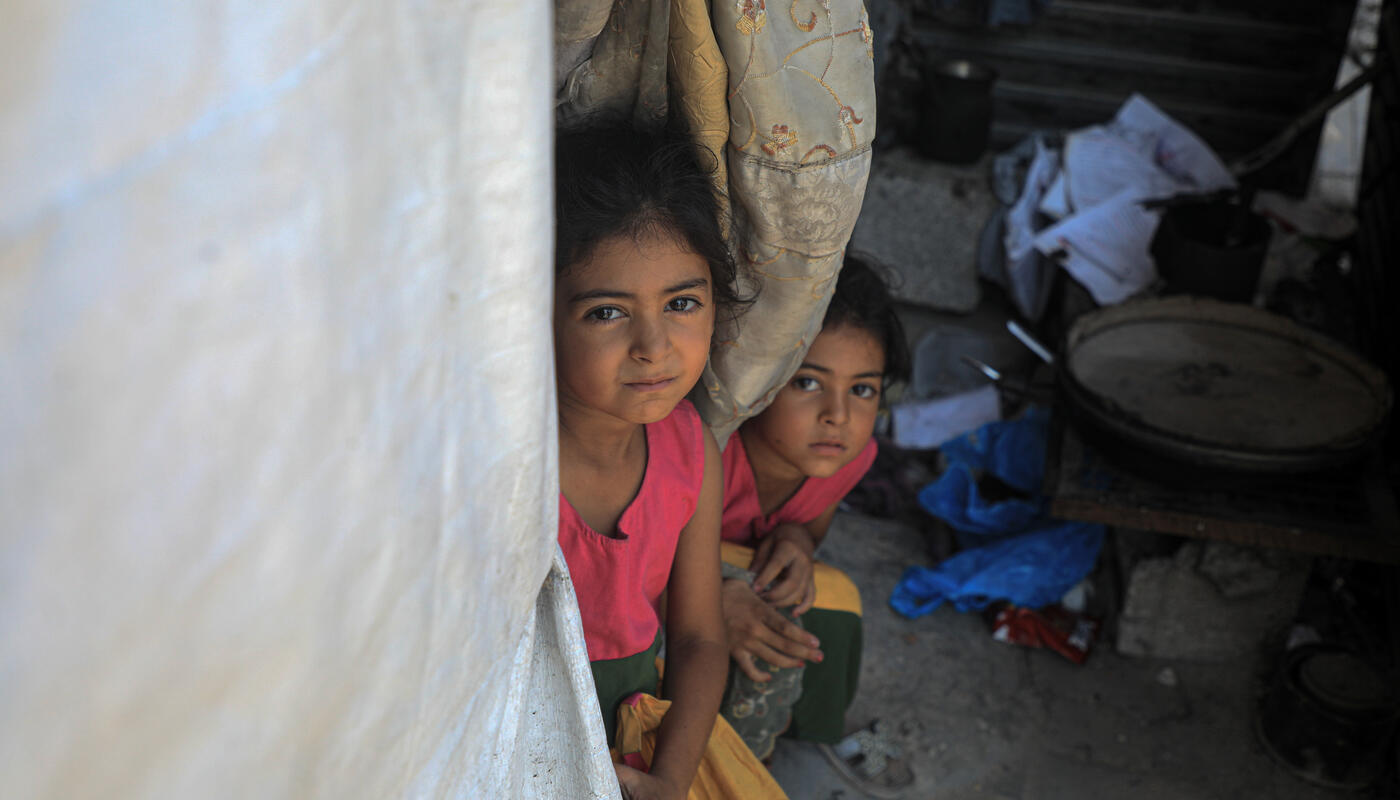
Displaced Palestinians in Gaza are now crammed together among lakes of sewage, piles of trash and mountains of rubble, unable to access essential services for survival, including medical facilities, shelter, water and vital supplies.
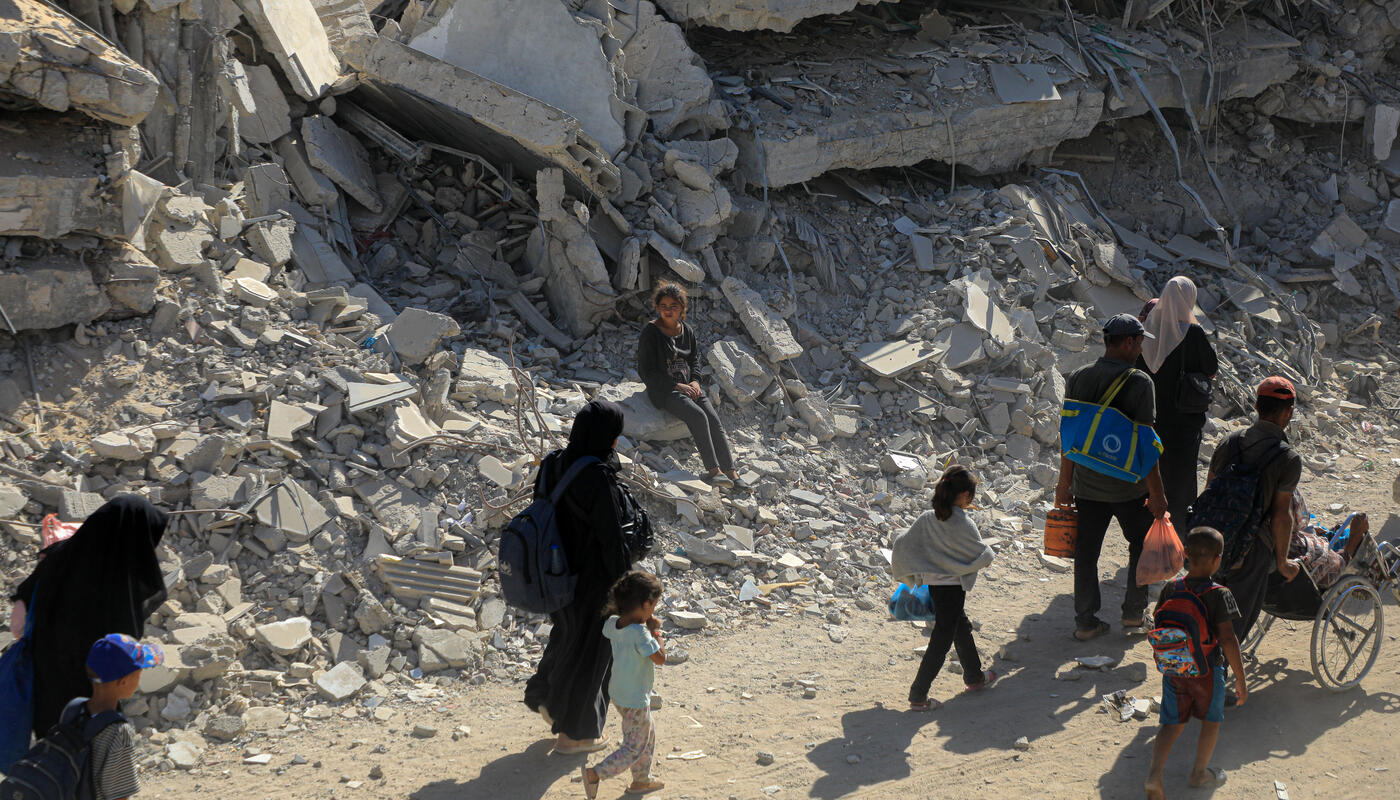
Overcrowding in shelters, coupled with the sanitation disaster and a scarcity of soap and hygiene products, is making women and girls more vulnerable to violence, infections and disease. One in four women has reported skin infections, twice as many as men, and women account for most cases of hepatitis A and gastrointestinal diseases.
Video: Gaza under attack
The overflowing camps along with the scarcity of resources and increasing levels of stress elevate risks of gender-based violence for women and girls. UNFPA provides medical care and counselling from tents, but services are limited by a lack of electricity and fuel, transport restrictions, and a dearth of available cash, leaving survivors of sexual violence without critical care.
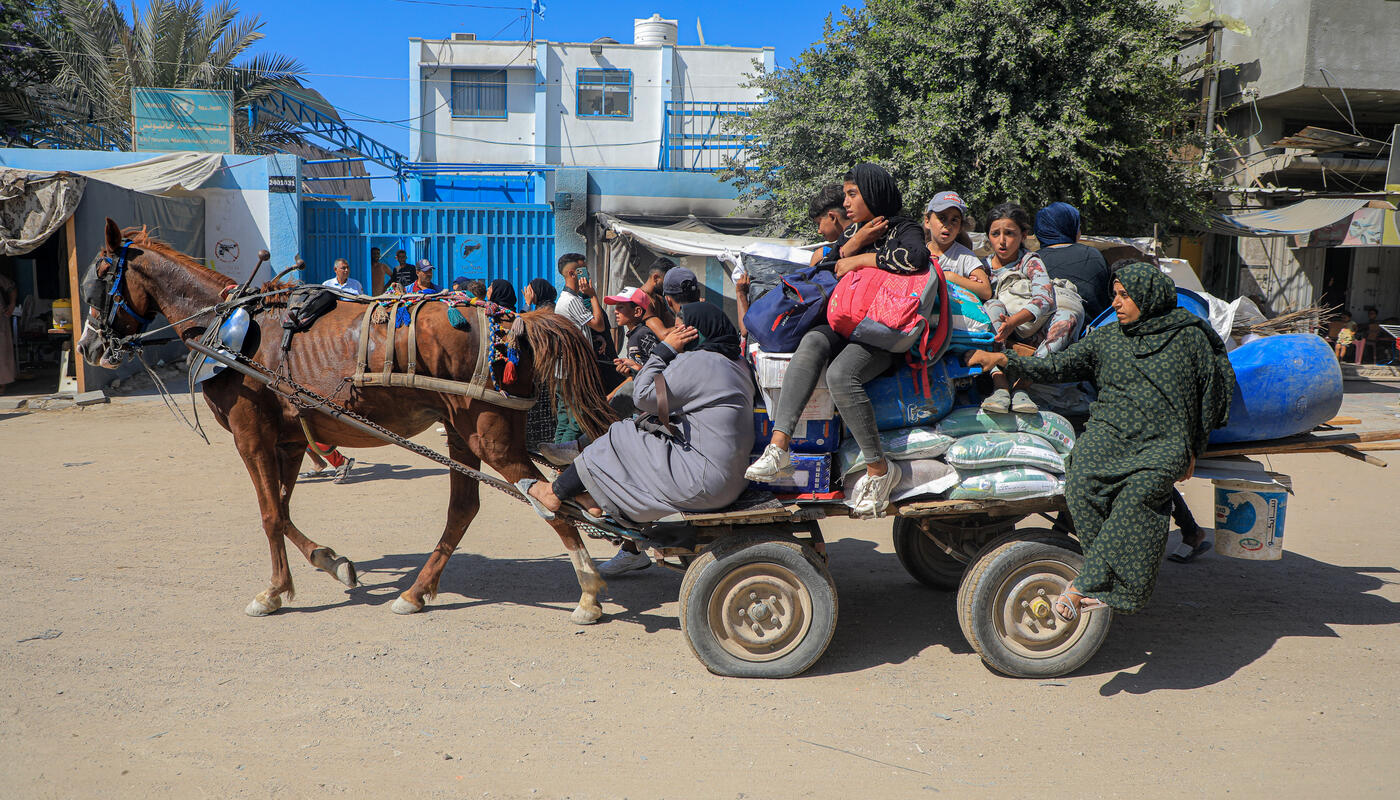
Health care in shambles
“We lack basic necessities for life,” Yasmine Ahmed, a midwife at Al Shifa Hospital, told UNFPA last November. Describing a severe shortage of supplies and medicines for pregnant women and newborns, she called the conditions “catastrophic.” Indeed, by April of this year, the hospital was in ruins and no longer operating. Only recently did an emergency wing reopen.
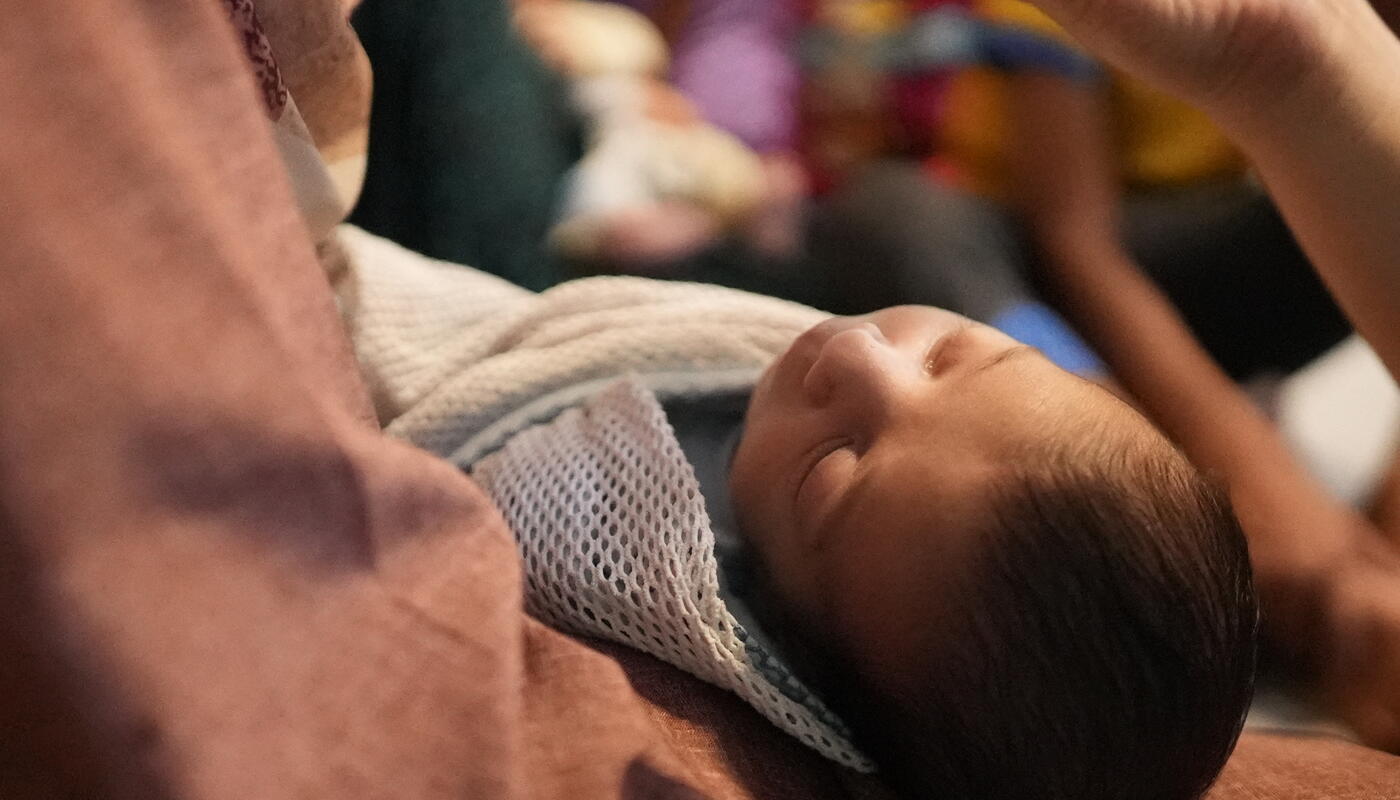
The entire health system has been shattered by war. Since 7 October last year, there have been 1,108 attacks on health care in the occupied Palestinian territory. No hospitals are fully functional. Only 17 out of the 36 hospitals in Gaza are partially functioning, and 57 out of 132 primary health-care facilities are operating. All are grappling with crippling shortages of fuel, medicine and essential supplies.
Video: Pregnant women in Gaza forced to give birth on hospital floors
“Hospitals are not places of hope anymore, nor of refuge or care. We cannot continue like this,” UNFPA’s Head of Office in Gaza, Judith Starkulla, said after a visit to Al Amal Hospital – which is partially functional – this past March. “Gaza is at breaking point.”
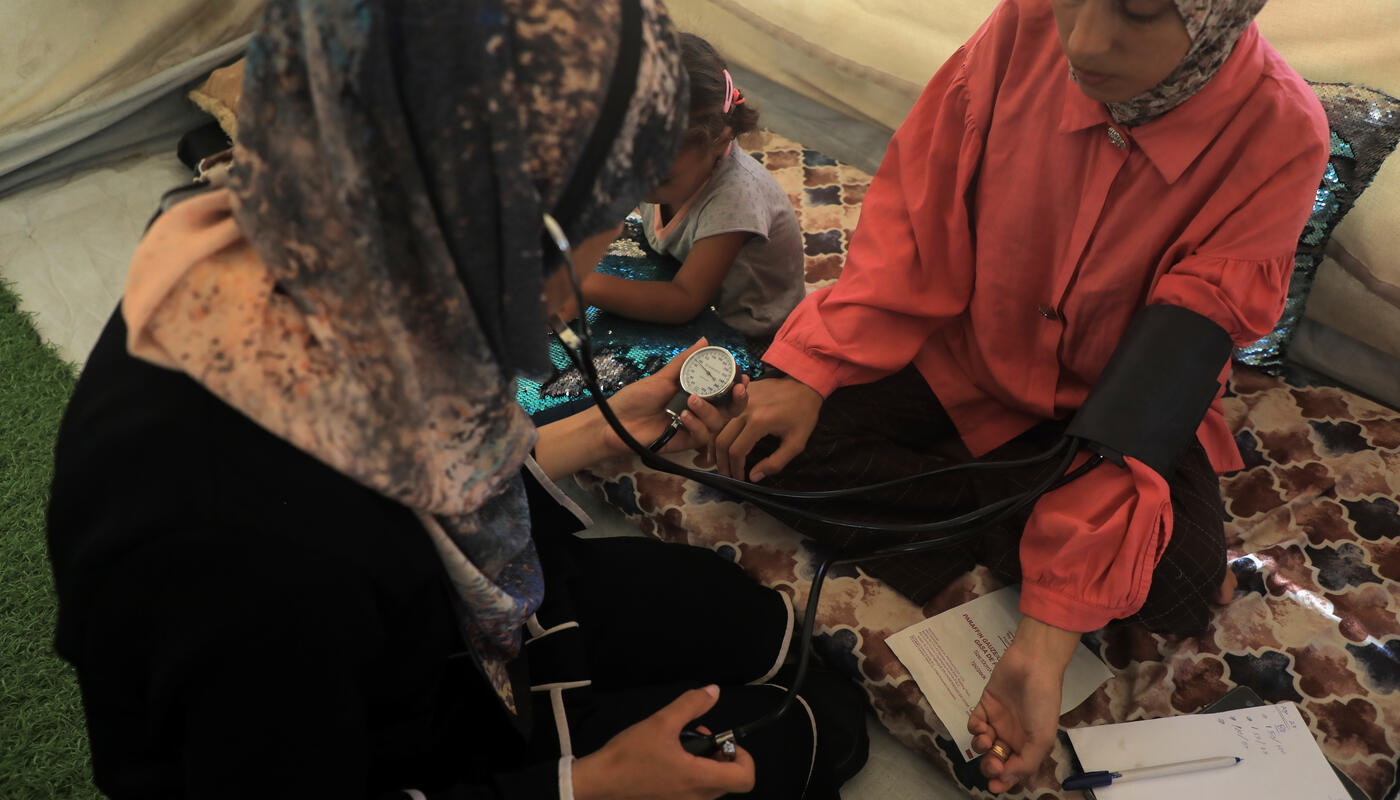
And now, with widespread damage to drainage infrastructure, a threat of floods looms as winter approaches. One third of the population is staying in flood-prone areas across Gaza. Local authorities and humanitarian partners fear that rainwater, seawater and sewage will flood tents, causing a potential public health crisis over the coming months.
Video: Maternity hospital burns amid war
Birth under bombardment
“I fled under fire, running, screaming and crying because of the bombs,” Ala’a recalled, describing a terrifying experience after she was forced to leave home this past June, in search of shelter while seven months pregnant. “At that moment, I feared I might lose my baby.”
Ultimately, she was fortunate. She managed to deliver her newborn son, Mohammad, safely in a field hospital in Khan Younis late this summer. “We are grateful,” she wrote in a letter to the dedicated health workers who assisted with the delivery at the field hospital. “The sound of the rockets and bombs overshadowed my joy, but I resolved that my newborn and I will go on, come what may. We will prevail.” She included a personal wish for the staff: “I hope that we meet again in better times.”
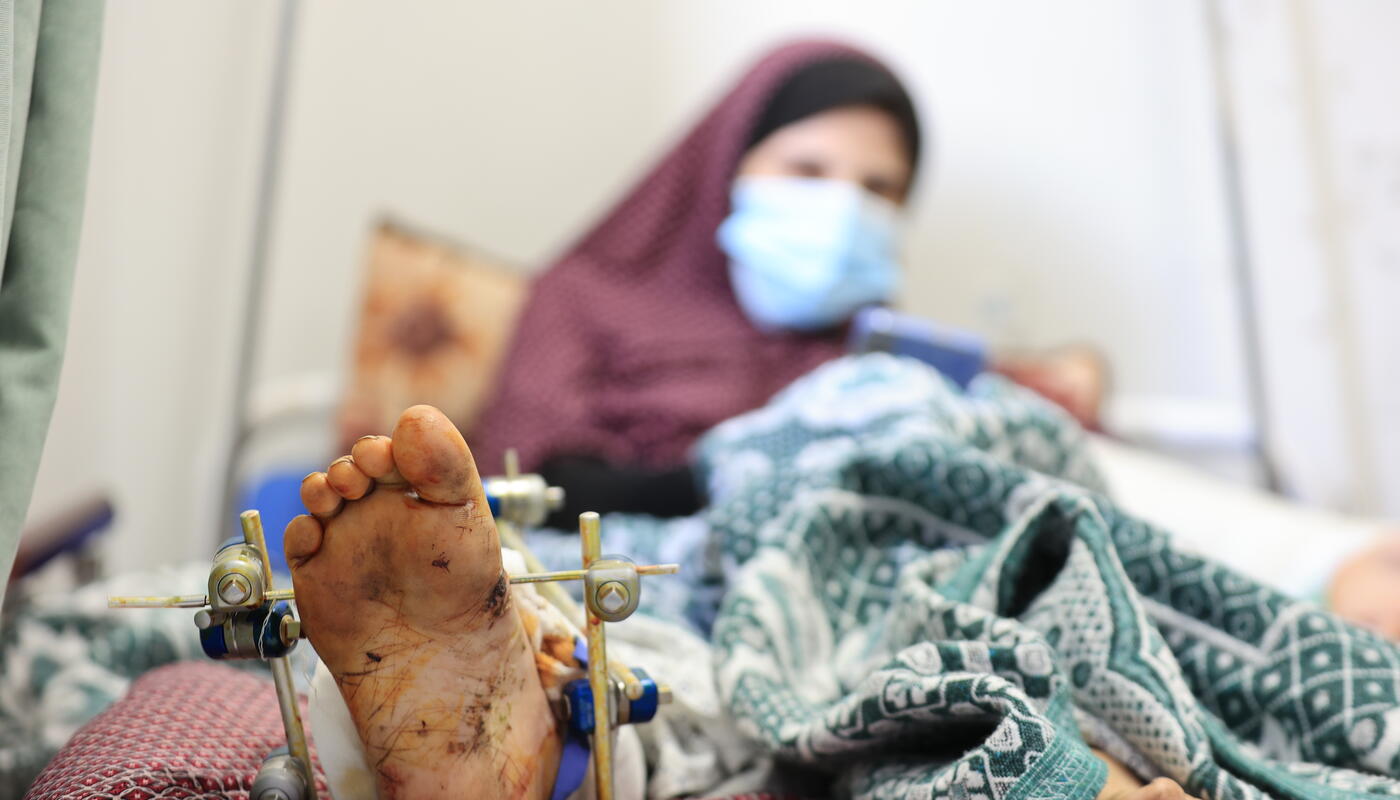
Many others have not fared so well. For an estimated 155,000 pregnant and breastfeeding women of Gaza, the war has created an unrelenting nightmare. Exhausted, traumatized and hungry, they face a critical lack of antenatal and postnatal care at displacement sites, with rising complications during pregnancy and birth and a shortage of medications for newborns.
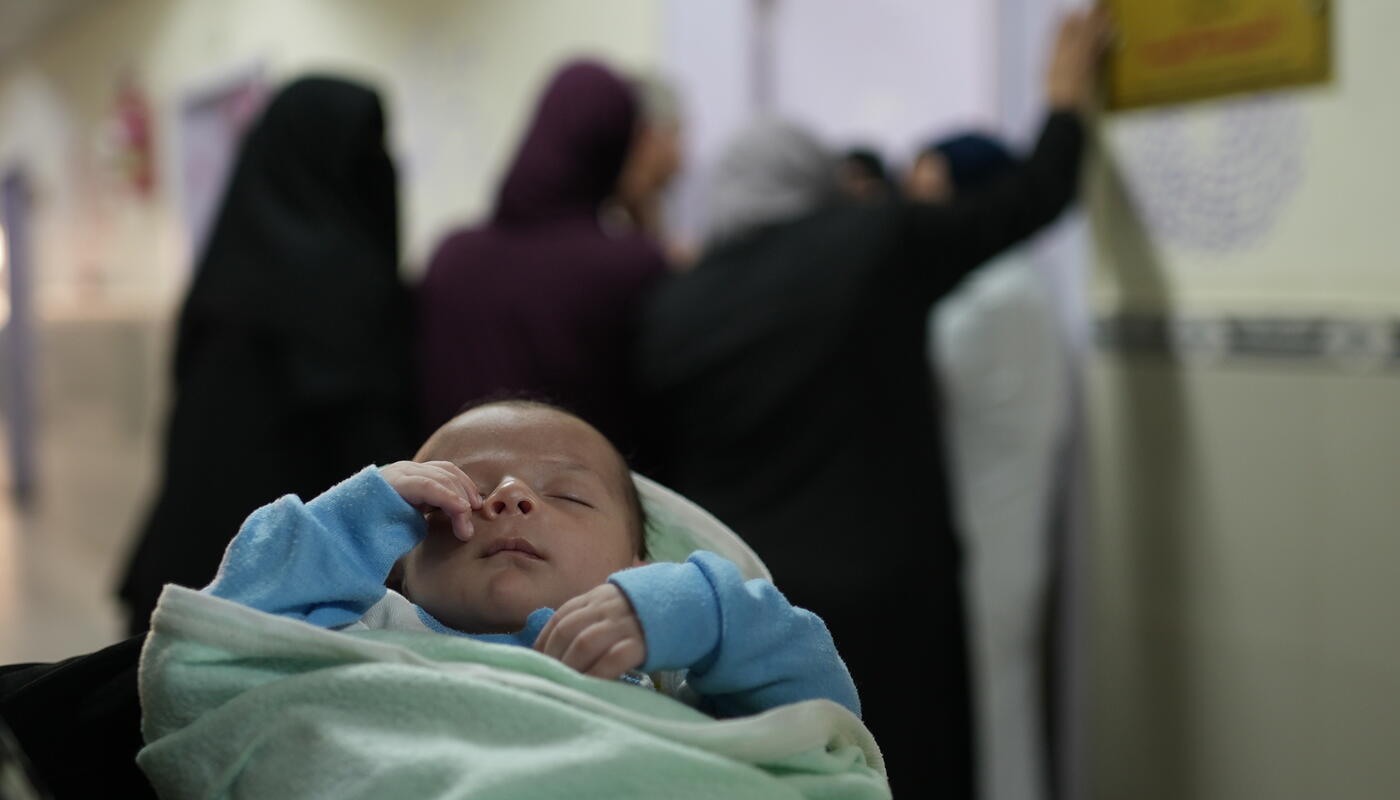
Many medical points operate just a few hours a day. Emergency deliveries take place in tents with no medical support. There is a lack of formula for babies and a dearth of nutritional supplements for pregnant and breastfeeding women.
Video: A midwife in Rafah describes the chaos of childbirth
Doctors and midwives report that pregnant women arriving at health facilities are trying to schedule early C-sections due to fear and uncertainty about future access to medical care. Newborns are dying because their mothers are unable to access regular prenatal or postnatal care. Premature and complicated births have increased. Nurses often lack supplies, and doctors say they no longer see healthy-size babies.
Video: Babies in intensive care forced to be evacuated
Meanwhile, in the West Bank, many of the 73,000 pregnant women are living in insecure areas and cannot access health clinics for antenatal or postnatal care, or get to a hospital to deliver safely.
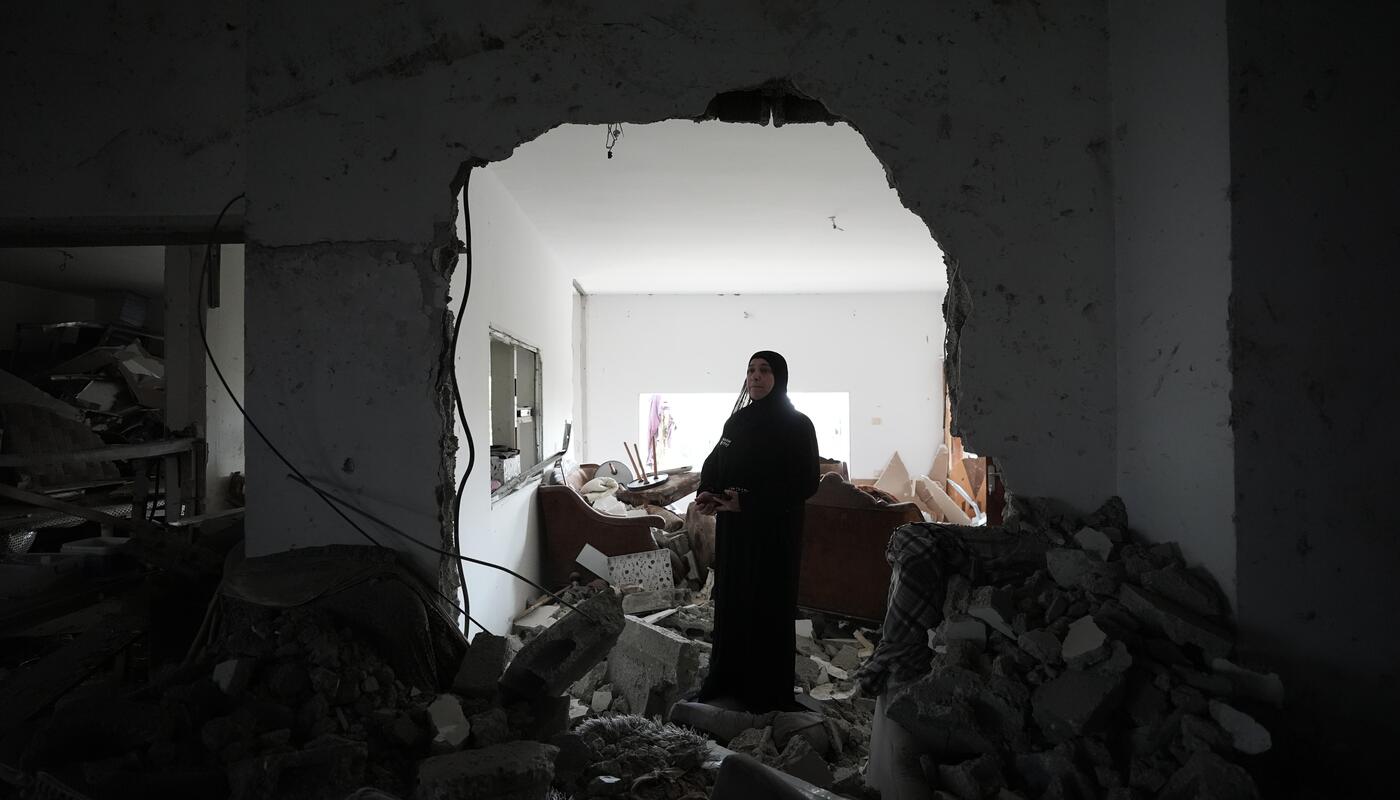
Hunger compounds the crisis. More than 17,000 pregnant women are now a step away from famine in Gaza, and nearly 11,000 pregnant women are already enduring famine. Malnutrition increases the risk of life-threatening complications and raises the odds of giving birth to preterm and undernourished babies.
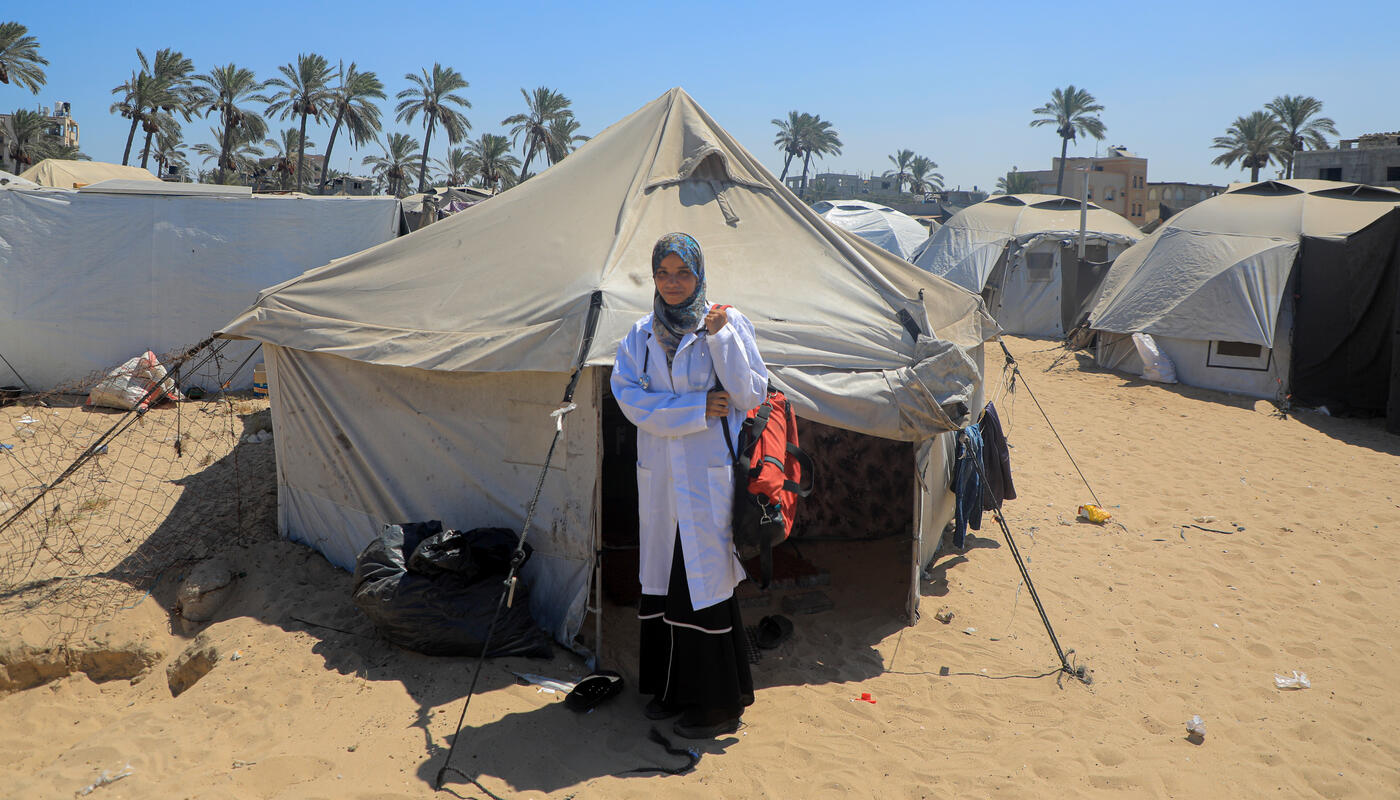
A life without dignity
Adding to their ordeal, women and girls face a shortage of menstrual pads and access to toilets and private washrooms. Some 10.3 million menstrual pads are needed every month for the 690,000 menstruating women and adolescent girls in Gaza.
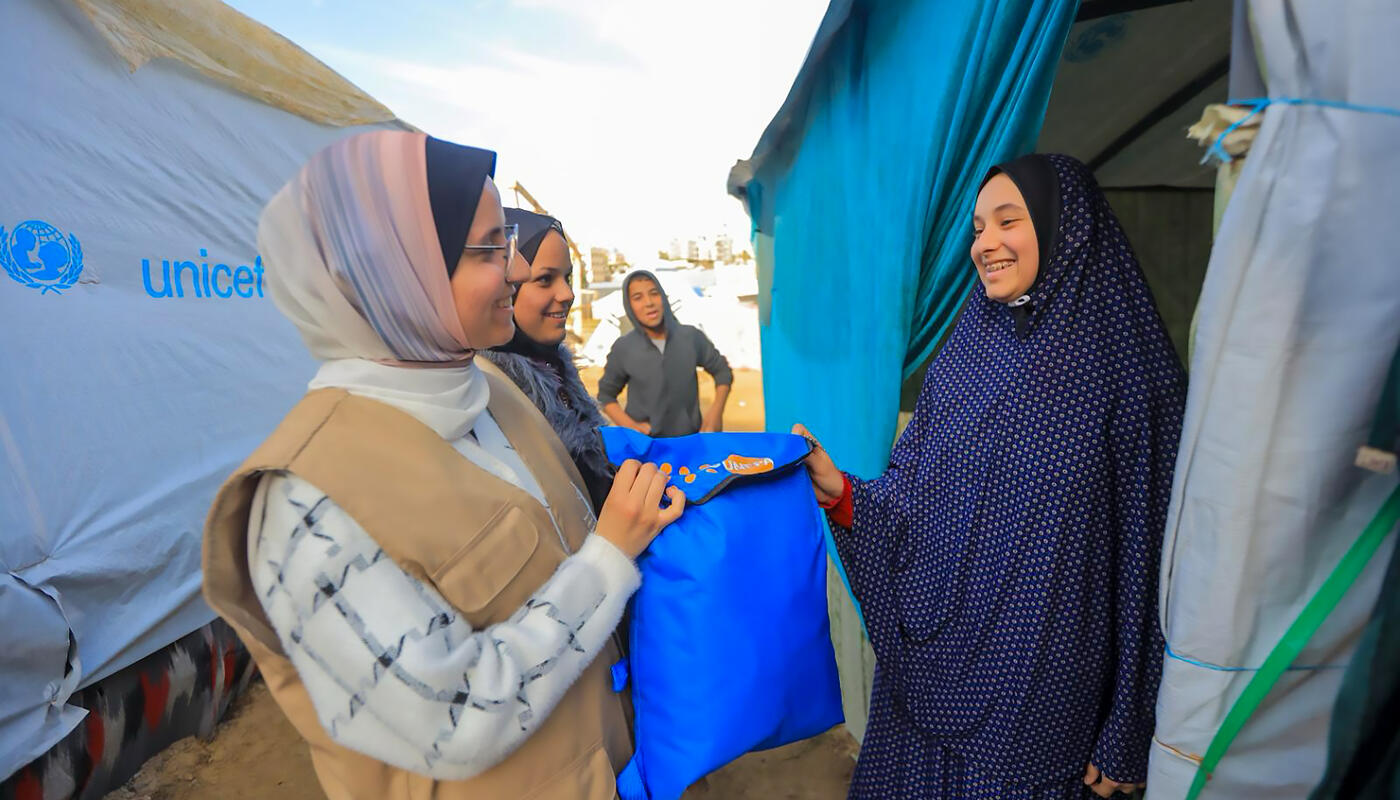
“I have a young daughter. She’s 16 years old. I would cut a piece of cloth to use as a sanitary pad for our periods,” 47-year-old Bakiza Mohamed told UNFPA this past March. “What else could I do?” Said a 19-year-old girl at the time: “I only have one pair of underwear. I have to wash it with dirty water, when it is available, and then use it again.”
Video: Women and girls use torn pieces of cloth in place of sanitary pads
Women and girls must have sufficient supplies of sanitary pads, basic hygiene supplies, and access to gender-separated facilities.
UNFPA has distributed 6.1 million menstrual pads and 50,800 hygiene kits, including underwear and soap, since the war began. Crucial to the psychological well-being of women and girls, these items offer a glimmer of hope amid the despair.
Video: Humanitarian needs in Gaza
UNFPA’s response
In support of women and girls in Gaza, UNFPA initiatives include establishing six mobile maternal health units, all of which are operational, in addition to deploying teams of sexual and reproductive health workers offering antenatal and postnatal care to pregnant and breastfeeding women; delivering health supplies to support births, blood transfusions, hygiene and other needs; offering gender-based violence prevention and response services; and enlisting midwives to provide sexual and reproductive health services.
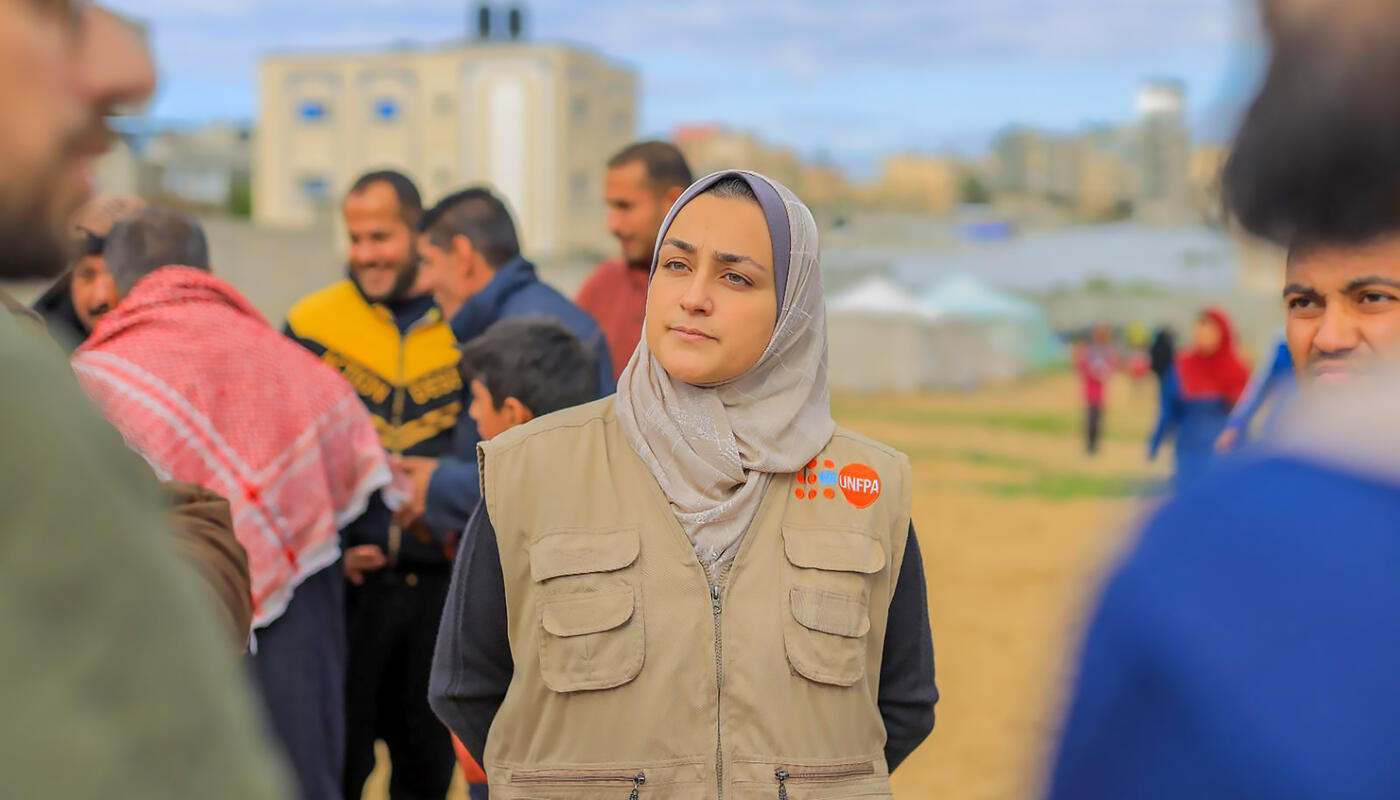
In the West Bank, UNFPA has distributed hundreds of packs of obstetric medicines as well as safe-delivery kits and supplies and equipment to support deliveries and ensure the continuity of emergency obstetric and newborn care. In addition, UNFPA has supplied medical devices and training in emergency obstetric care to 10 Safe Motherhood Centres; provided five mobile clinics; and trained 300 volunteers to assess community needs and design youth-led initiatives to decrease violence and frustration.
Video: Midwives in Gaza receive much-needed supplies for safe births
UNFPA is appealing for $90 million to address the most pressing needs of women and girls in Gaza and the occupied West Bank from January to December of this year. As of August, US$36.8 million has been received. Our priorities:
- Rebuild the capacity of the health-care system in Gaza, including for maternal health and protection services.
- Replenish stocks of life-saving maternal health medicines and supplies and essential hygiene items, and increase the number of trained midwives to expand access to basic health care, including antenatal and postnatal care.
- Re-establish referral systems for gender-based violence survivors and look at alternate modes to provide psychological first aid.
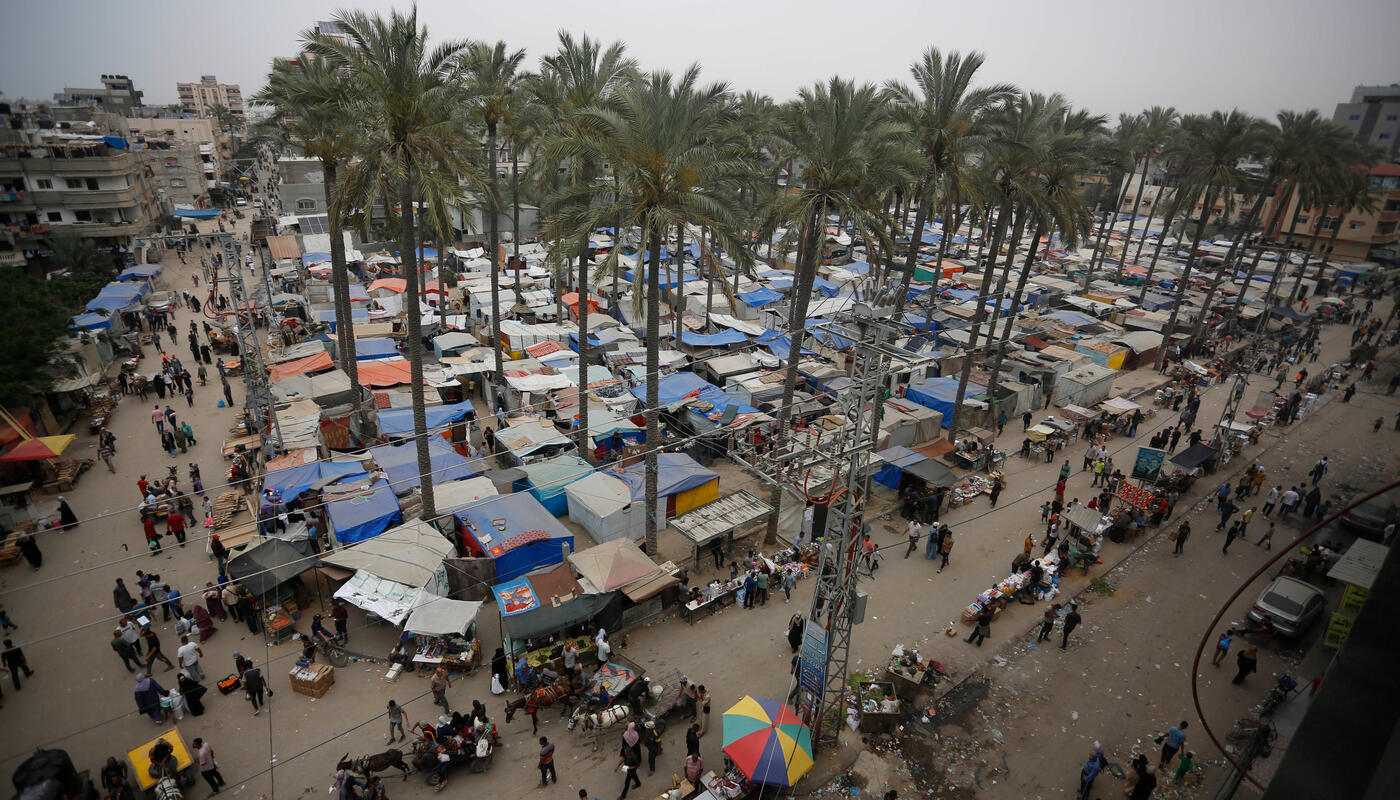
For the past year, the people of Gaza have lived through untold suffering, grief, sorrow and loss. Their lives are dominated by fear, thirst, hunger, disease and a lack of basic sanitation. UNFPA calls for the sanctity of health care to be respected. The safety of health and humanitarian workers must be guaranteed. Health workers and patients should not have to risk their lives to provide and access health services, and hospitals must never become battlefields.
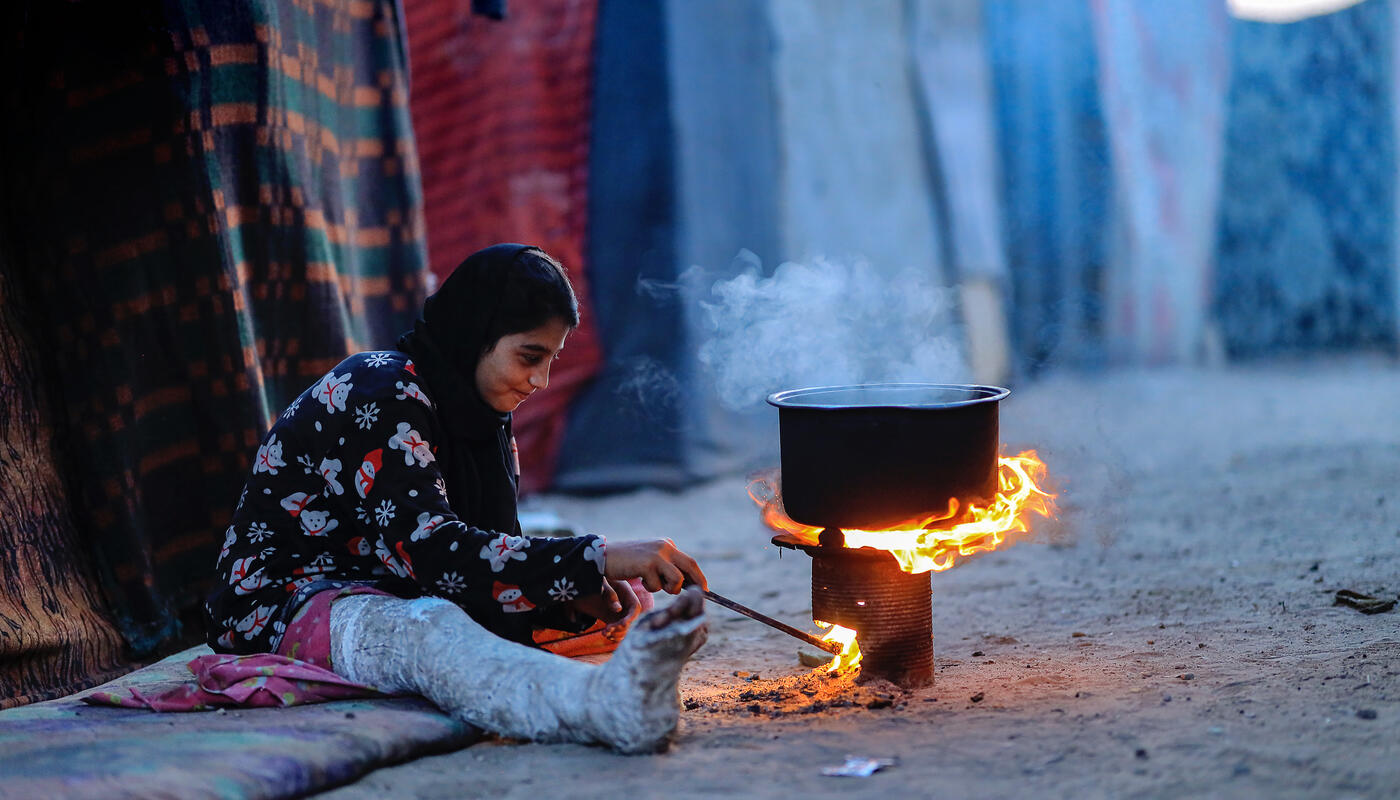
It is long past time for this crisis to end. UNFPA echoes calls for an immediate and sustainable ceasefire, for the people of Gaza to have a healthy and secure future, and for all hostages to be immediately released from Gaza to their families. We call on all parties to this conflict to respect their obligations under international humanitarian law.
Video: Sheltering from bombs at a hospital in Gaza
You can learn more and donate to help support the women and girls of Gaza here.
